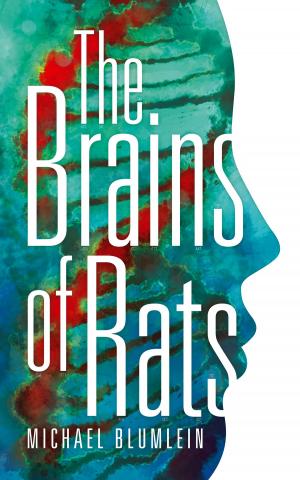The Education Conundrum: One academic's thoughts on a wicked problem
Nonfiction, Reference & Language, Education & Teaching, Higher Education, Science & Nature, Science| Author: | Greg Foley | ISBN: | 9781630413521 |
| Publisher: | Greg Foley | Publication: | November 13, 2013 |
| Imprint: | Smashwords Edition | Language: | English |
| Author: | Greg Foley |
| ISBN: | 9781630413521 |
| Publisher: | Greg Foley |
| Publication: | November 13, 2013 |
| Imprint: | Smashwords Edition |
| Language: | English |
Inspired by 25 years’ experience of working in the Irish university sector, this book is an exploration of all aspects of Irish education with a particular emphasis on third-level education. As well as dealing with issues relating to the very purpose of education, it deals with the organization of the education system and casts a critical eye on the teaching and learning ‘culture’. The book also focuses on the business and culture of science, especially the funding of science and provides insight into the vagaries of academic life including worries about managerialism and commercialism. A theme which runs through the book is the author’s perception that much of what we do today is based on the concept of plausibility. Whether it is the role of education in the economy or the way we structure our third level institutions or how we organise research around the notion of a ‘centre of excellence’, the underlying justification is usually one based on plausibility rather than real evidence. This leads to an alarming degree of groupthink within the education sector and a failure to address some of the truly important issues, many of which are as much societal as they are educational.
The book is about academic matters and it is written by an academic but it is not written in an academic style. It is structured as a large series of over one hundred short commentaries, divided among seven chapters, and written in a style that should be accessible not only to ‘insiders’ but also the general reader with an interest in any of the topics discussed in the book. The layout of the book will allow the busy reader to ‘dip in and out’ without having to commit to the whole book at any given time. The commentaries can be read by the reader in any order he or she chooses.
This book is ultimately the culmination of an increasing sense on the author’s part that he was being bombarded every day by ‘waffle’ and meaningless jargon: industry leaders talking about 21st century skills, policy-makers talking about the transformational effects of new technologies, politicians talking incessantly about that most meaningless of concepts, the ‘knowledge economy’, educators innovating for innovation’s sake and scientists with vested interests extolling the virtues of basic research. This book is a pragmatic reply to the jargon.
Inspired by 25 years’ experience of working in the Irish university sector, this book is an exploration of all aspects of Irish education with a particular emphasis on third-level education. As well as dealing with issues relating to the very purpose of education, it deals with the organization of the education system and casts a critical eye on the teaching and learning ‘culture’. The book also focuses on the business and culture of science, especially the funding of science and provides insight into the vagaries of academic life including worries about managerialism and commercialism. A theme which runs through the book is the author’s perception that much of what we do today is based on the concept of plausibility. Whether it is the role of education in the economy or the way we structure our third level institutions or how we organise research around the notion of a ‘centre of excellence’, the underlying justification is usually one based on plausibility rather than real evidence. This leads to an alarming degree of groupthink within the education sector and a failure to address some of the truly important issues, many of which are as much societal as they are educational.
The book is about academic matters and it is written by an academic but it is not written in an academic style. It is structured as a large series of over one hundred short commentaries, divided among seven chapters, and written in a style that should be accessible not only to ‘insiders’ but also the general reader with an interest in any of the topics discussed in the book. The layout of the book will allow the busy reader to ‘dip in and out’ without having to commit to the whole book at any given time. The commentaries can be read by the reader in any order he or she chooses.
This book is ultimately the culmination of an increasing sense on the author’s part that he was being bombarded every day by ‘waffle’ and meaningless jargon: industry leaders talking about 21st century skills, policy-makers talking about the transformational effects of new technologies, politicians talking incessantly about that most meaningless of concepts, the ‘knowledge economy’, educators innovating for innovation’s sake and scientists with vested interests extolling the virtues of basic research. This book is a pragmatic reply to the jargon.















